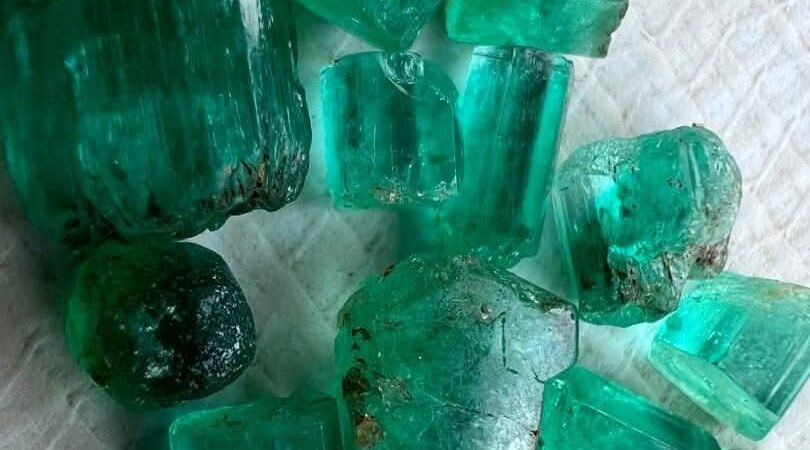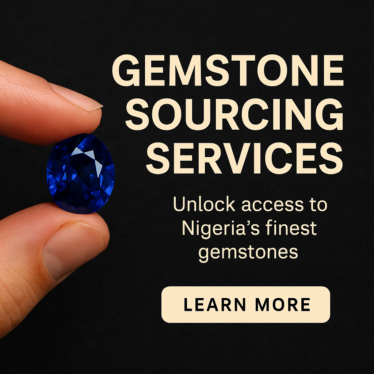The allure of Nigeria’s gemstone market is undeniable. With a rich geological landscape yielding everything from vibrant tourmalines to deep blue sapphires, the country has become a significant player in the global gem trade. However, the market’s largely informal nature, characterized by artisanal and small-scale miners, can make sourcing a challenging and risky endeavor for the uninitiated. To navigate this complex landscape safely and successfully, here are 12 essential tips based on extensive insider knowledge.
1. Understand the Informal Market Landscape
The vast majority of Nigerian gemstones are sourced from artisanal and small-scale miners in rural communities. This means there isn’t a single, centralized exchange or a standard set of practices. Be prepared for a decentralized and often chaotic environment where trust and personal relationships are paramount.
2. Prioritize Verified Suppliers & Networks
Avoid dealing with random individuals or unverified online sellers. The safest route is to work with established networks and trusted suppliers. These are individuals and organizations with proven track records who can guarantee the origin and authenticity of the stones.
3. Don’t Rely Solely on Appearance
A stone may look stunning, but its true value and authenticity are determined by its mineral composition, origin, and treatments. Novice buyers are often fooled by look-alike stones or synthetic imitations. Always assume a stone is not what it appears to be until it’s been properly vetted.
4. Seek Expert Guidance & Consultation
This is the single most important tip. The complexities of the Nigerian market- from negotiating with miners to verifying authenticity- are best handled by a local expert. A consultant with deep insider knowledge can save you from costly mistakes and ensure you get fair value. The little commission or fee you pay for this services will save you some headache.
5. Visit Reputable Gemstone Hubs
While the market is decentralized, certain towns and markets serve as major trading hubs. Locations like the Ibadan International Gemstone Market, and mining towns like Keffi in Nasarawa State, are places where you can meet miners and dealers. However, these are not without risk and should be visited with an experienced guide.
6. Insist on Gemological Testing & Certification
For any significant purchase of high value gems, a gemological report from a reputable laboratory is non-negotiable. While a local certificate may be offered, always opt for a third-party, internationally recognized lab to confirm the stone’s identity, quality, and any treatments it may have undergone.
7. Understand the Value Chain
Know who you are dealing with. Is it a miner, a local dealer, a broker, or a cutter? Each link in the chain adds a margin. Knowing who you’re buying from can help you understand the price and potential for negotiation. Sourcing directly from the mine can be cheaper, but also more difficult, complex and risky. Your best bet is to deal with a verified local dealer or a sourcing consultant.
8. Be Mindful of Pricing and Valuation
Gemstone pricing in Nigeria is often fluid and subject to negotiation. It’s not a fixed price list. Have a clear idea of the international market value of the gemstone you are seeking. This knowledge, combined with a good local consultant, is your best defense against overpaying.
9. Investigate Ethical Sourcing Practices
More and more buyers are concerned with the ethical origin of their gems. While difficult in an informal market, it is possible to source responsibly. Look for suppliers who can provide a chain of custody and who demonstrate a commitment to fair wages and safe working conditions for artisanal miners.
10. Pay Attention to Legal and Export Procedures
The Nigerian government has regulations for mineral exports. Ensure you are working with a supplier who understands and complies with these procedures. Attempting to bypass legal channels can lead to the seizure of your stones and other legal complications.
11. Safeguard Your Transaction
Never carry large amounts of cash. Use secure payment methods. When dealing with a new supplier, consider using a trusted third-party agent who can hold funds until the goods are verified and secured for transport.
12. Don’t Rush the Process
Sourcing gemstones in Nigeria is a relationship-based business that takes time. Rushing can lead to poor decisions, scams, or buying inferior products. Be patient, build trust, and allow your local consultant to direct and manage the process effectively.
Ready to Source with Confidence?
Navigating Nigeria’s gemstone market requires more than a keen eye; it requires an insider’s network and a deep understanding of its complexities. At Nigerian Mineral Exchange, we provide a reliable bridge to this vibrant industry. Our expert consultants have a proven track record of helping clients source authentic, high-quality, and ethically sourced gemstones.
Don’t leave your investment to chance. Contact us today to schedule a consultation and let us guide you safely to Nigeria’s hidden treasures. Call/ Whatsapp: +2348130799304
We also invite you to explore our comprehensive e-book, “Nigeria’s Gemstone Goldmine: Unveiling a Billion-Dollar Industry,” for even deeper insights.
READ ALSO:
The Ultimate Guide to Starting a Mining Company in Nigeria
READ ALSO:







Leave a Reply